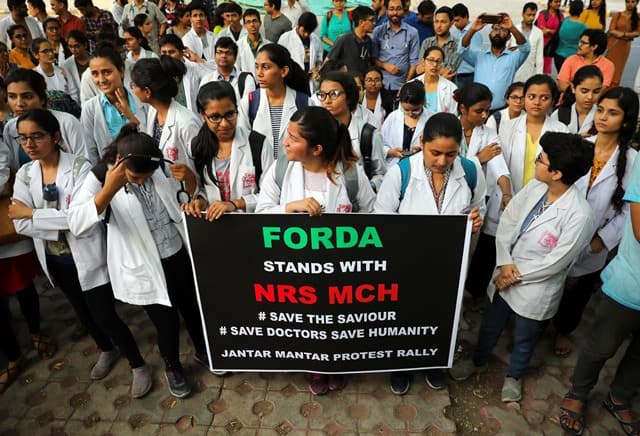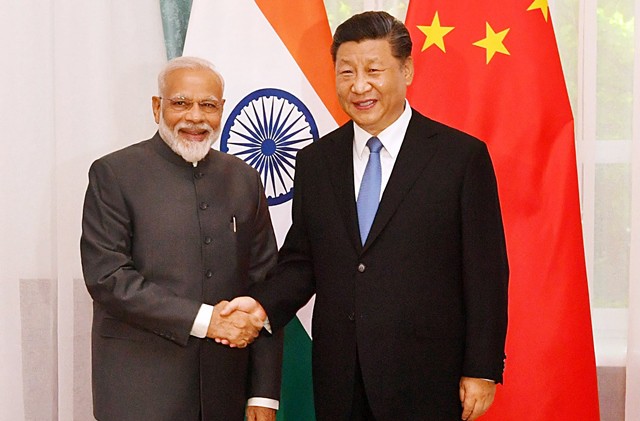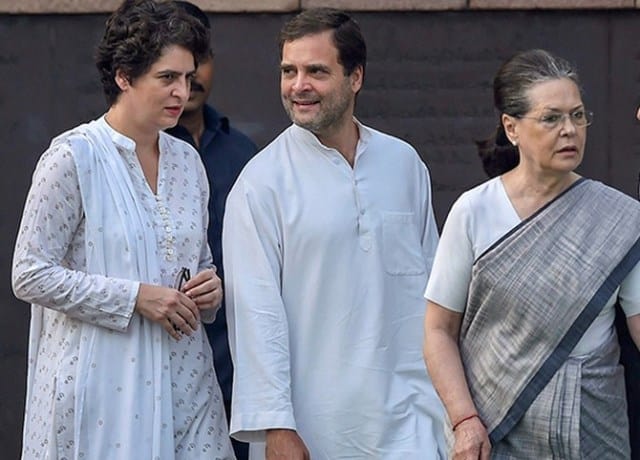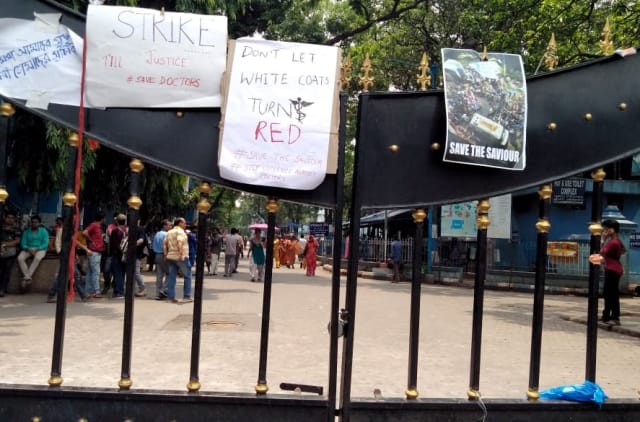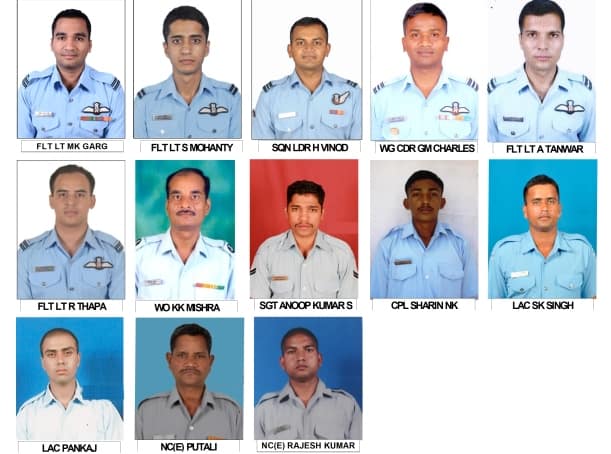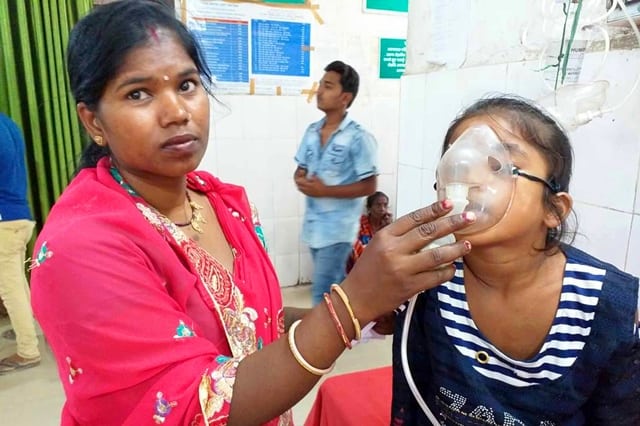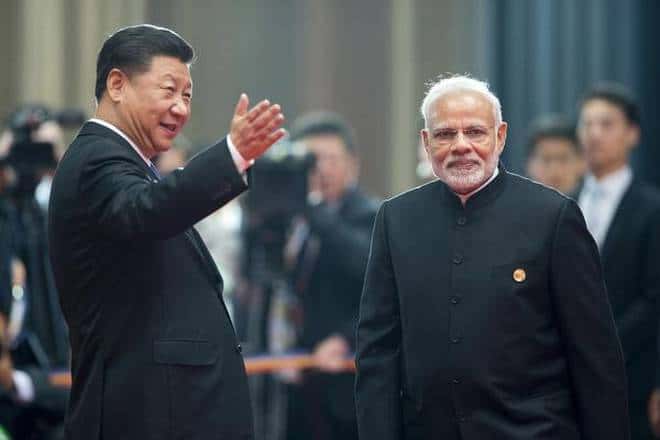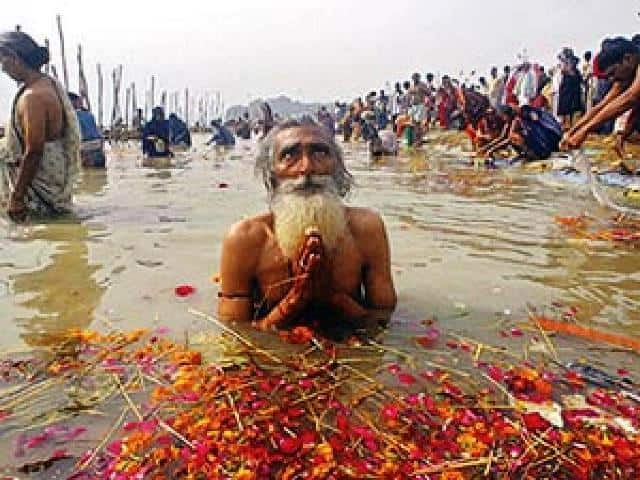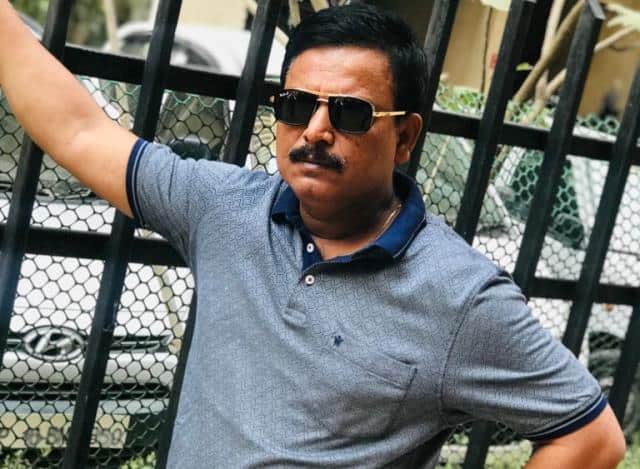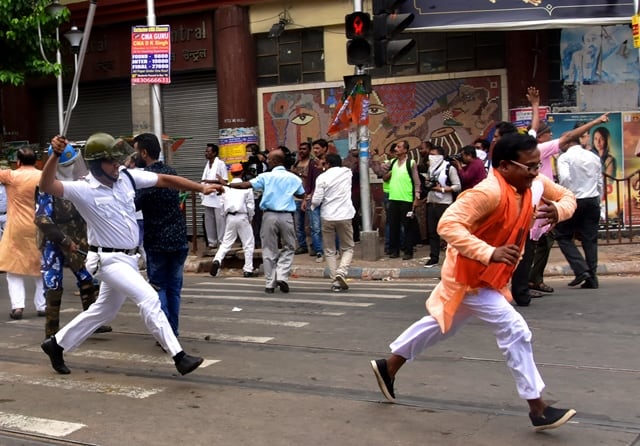An alternative leadership takes time to emerge and the Congress high command must patiently wait for that moment to arrive
It is tempting to make an uncharitable yet apt comparison of Rahul Gandhi with Casabianca, the boy who stood on the burning deck. He wants to jump off the ship, but can’t. A ship needs an anchor, but here, the anchor needs the ship.
Most of those who sailed with him want him to stay at the helm. Blinded by a mix of loyalty and despair, they can’t visualize another captain. Before Rahul, mother Sonia, father Rajiv and grandmother Indira had led them to their electoral highs and lows. The loyalists are hoping for yet another heave out of their worst low in five generations of the Nehru-Gandhis.
ALSO READ: Is Dynastic Politics Dead? NDA Is Nursing Aplenty
It is worst because their party has lost its pre-eminence to another force that is many times more muscular, resourceful, focused and determined to stay, come what may. To some analysts, this is India’s end-of-history moment.
Those watching our Casabianca with a mix of glee and disgust that a loser invites want him out. They couldn’t care less if the ship sinks. Such is the mood after the overwhelming electoral triumph of the people Rahul fought defiantly, but lost badly. That elections come and go does not seem to occur to his friends and foes.
This is not the first time, but yes, media and the middle class across much of India, happily listening to their own loud drum-beats, have never been so ruthless. Even if momentary, these, too, are signs of the changed times.
Should the ship sink, with or without Rahul and/or the Nehru-Gandhis? Risking being accused of writing an apologia, one still wants to stress the need for a strong opposition for Indian democracy to thrive. A discourse has to have at least two sides to justify itself. The Congress, although a pale shadow of the party that had inspired generations, has the biggest, if not sole, responsibility. India’s oldest party cannot and should not die.
But it is facing its existential crisis. Each time it has, groups have shifted, some even retaining the Congress label. That is how you have a beleaguered Mamata Banerjee and her Trinamool Congress in West Bengal and a triumphant YSR Congress in Andhra Pradesh.
Neglected, Congressmen have walked away. The North-East was won for the BJP by Himanta Biswa Sarma whom Rahul had paid no heed. More such shifts will take place in the coming weeks and months if the party does not put its house in order. And, to begin with, it does not fill the leadership vacuum.
See the contrast: when Rahul, having lost the Amethi bastion, was thanksgiving in Wynad, mealy-mouthing his will-respond-to-hate-with-love lines, Modi was also visiting temples in Kerala. Donning veshti and angavastram, he assured Keralites that he ‘loved’ them even if they did not vote him. Modi was already preparing ground for the next election, while Rahul resembled a snake that has gobbled a shrew (chhachhunar) that he can neither devour, not eject.
As an aside, it needs recalling how the BJP, today’s victor, managed its crises after 1984 (only two members in the Lok Sabha), 1996 (losing power by a single vote), in 2004 (losing again by whiskers on failing to win over allies) and 2009 (defeat confirmed by rivals returning in larger numbers). The party was resuscitated and guided by Rashtriya Swayamsewak Sangh (RSS), its ideological mentor, whose cadres filled the playgrounds and poll rallies.
The Congress has no such mentor and the ‘dynasty’ that has leads it is no longer the answer to a marauding BJP. Sonia is re-elected the parliamentary party chief as part of a holding operation to quell murmurs getting louder and turning into rebellion. Nineteen years the party chief, she enjoys respect within and among opposition leaders. But the latter, into a long winter for now, have no patience for a defeated Congress. The more agile among them, Mayawati and Aklhilesh Yadav, have mutually separated.
The Congress’ problems are intertwined, which makes it hard to see. The rot started with Indira Gandhi who had transformed the composition and political culture of her party by replacing established heads with rootless persons without self-esteem through a new culture of nomination. Today, it doesn’t have an organisation in most parts of the country, despite years Rahul wasted building it.
It has not wielded power in the bigger States for long years. It has failed to consolidate and to correct its mistakes – unlike BJP. Narrow victories in Madhya Pradesh and Rajasthan last December that got overturned in the parliamentary polls are examples.
The defeat has only exacerbated factionalism. A month after the elections’ outcome, Congressmen are damaging their party further by fighting among themselves. Provincial satraps are becoming silently defiant and legislators are beginning to jump off the ship.
The party also has serious ideological problems. Trying to be everything to everyone worked in the distant past – not any longer. The slide-down accelerated under a politically inexperienced Rajiv when it swerved from pandering to Muslim orthodoxy (the Shahbanu case and undoing a modern court verdict on alimony to divorced wife) to opening the locks of the disputed Ram temple in Ayodhya. In adopting ‘soft’ Hindutva to counter the BJP’s ‘hard’ version, it has completely conceded the ideological space.
In contrast, the BJP now has become the dominant party occupying the space from the centre-right to the extreme right. The Congress has responded by trying to appropriate Ram temple and cow protection during the election campaign.
Having conceded the secular platform, the Congress can still develop a narrative of Sanatan Dharma, the essence of Hinduism, as a way of life different from the Hindutva, eschewing the aggressive political aspect. It can rescue secularism as well by first, self-belief and then, stressing, not on keeping away from religion, but by advocating equal treatment for faiths to build afresh the composite culture. It’s long haul uphill.
Finally, the ‘dynasty’ is a matter of interpretation and expediency. The choice of retaining it or not is best left to the party. Virtually every party in India has dynasty at its core. If 31 percent of Congress candidates in this election were ‘dynasts’, as per a study, 22 percent BJP nominees also were from families. And most regional parties are notoriously family ventures. It can’t be argued that in the game of changing electoral fortunes, the families that lose must disappear while the victors can prosper.
The liberal classes whether or not they swear by the Congress, are on the back-foot and alarmed. They wishfully hope the party would throw up a new leadership – not of those remotely pitch-forked, not those who want to keep the seat warm for Rahul or anyone from the family. That would be waiting for Godot. Will this Godot arrive?
Hence, it would be unnecessary and unwise to advocate a decision from outside. Established political leadership cannot be replaced abruptly and an alternative leadership takes time to emerge. It would be suicidal for the Congress, or any other party – and the BJP would want precisely that.
The writer can be reached at mahendraved07@gmail.com
]]>
